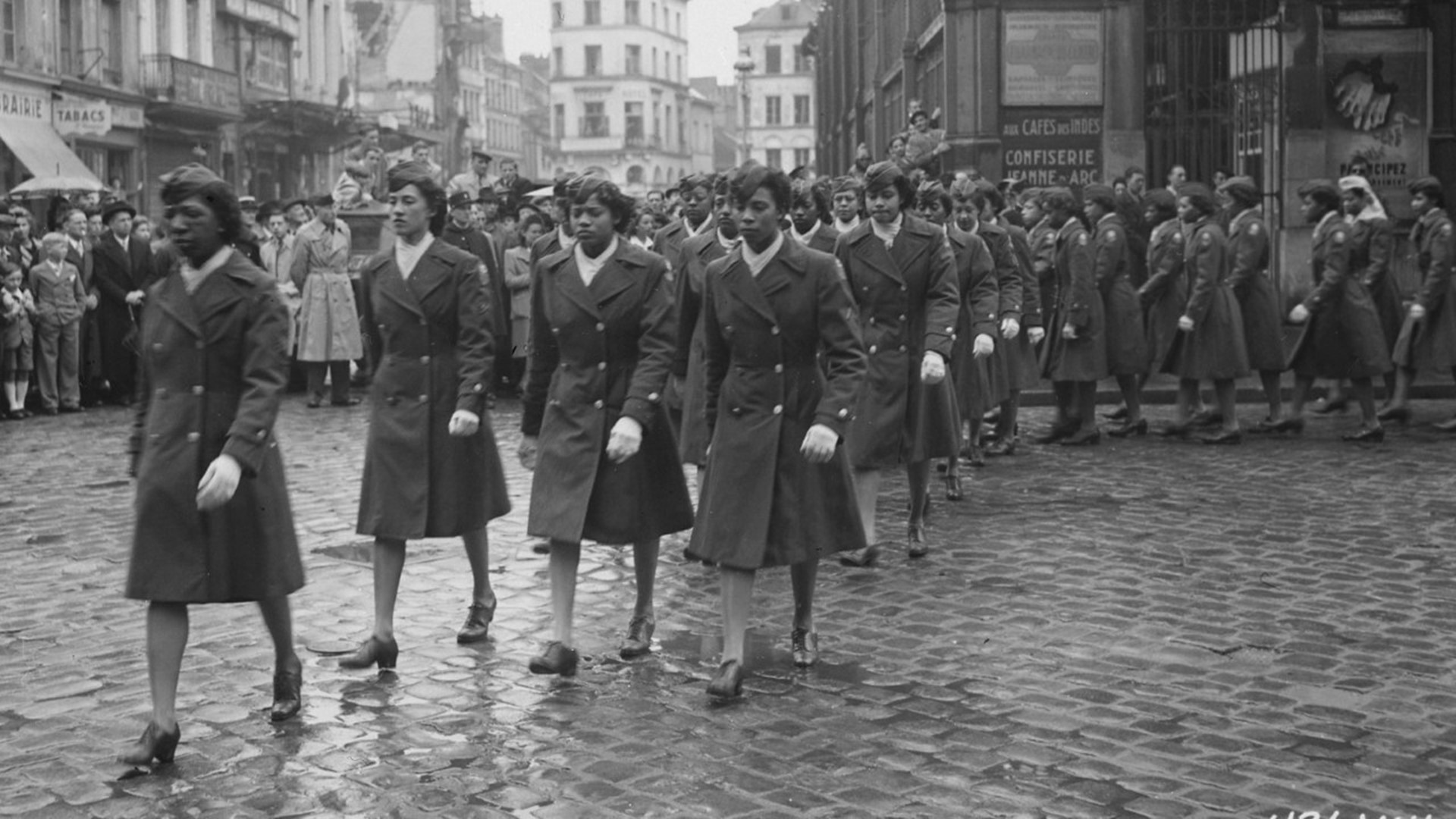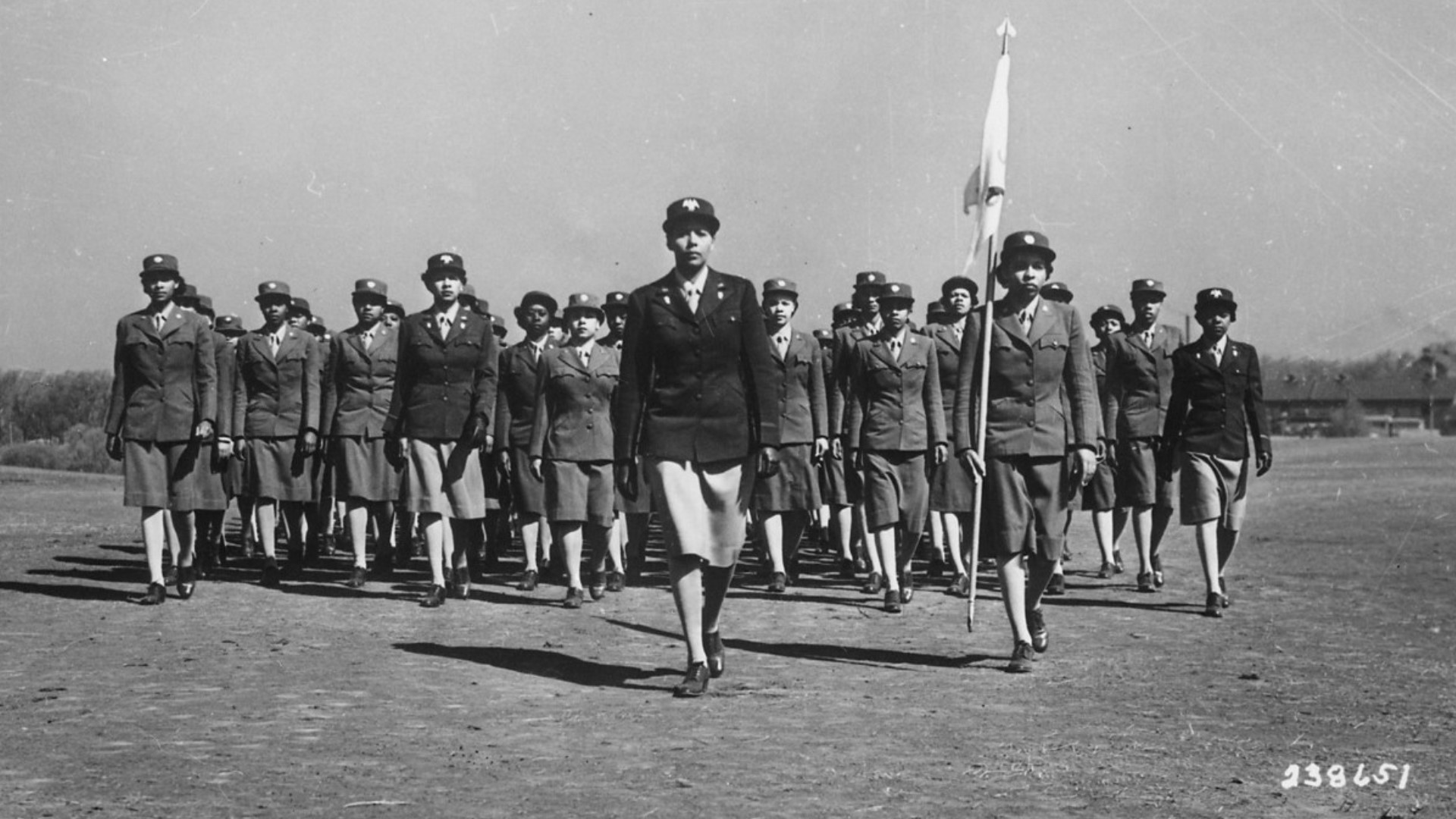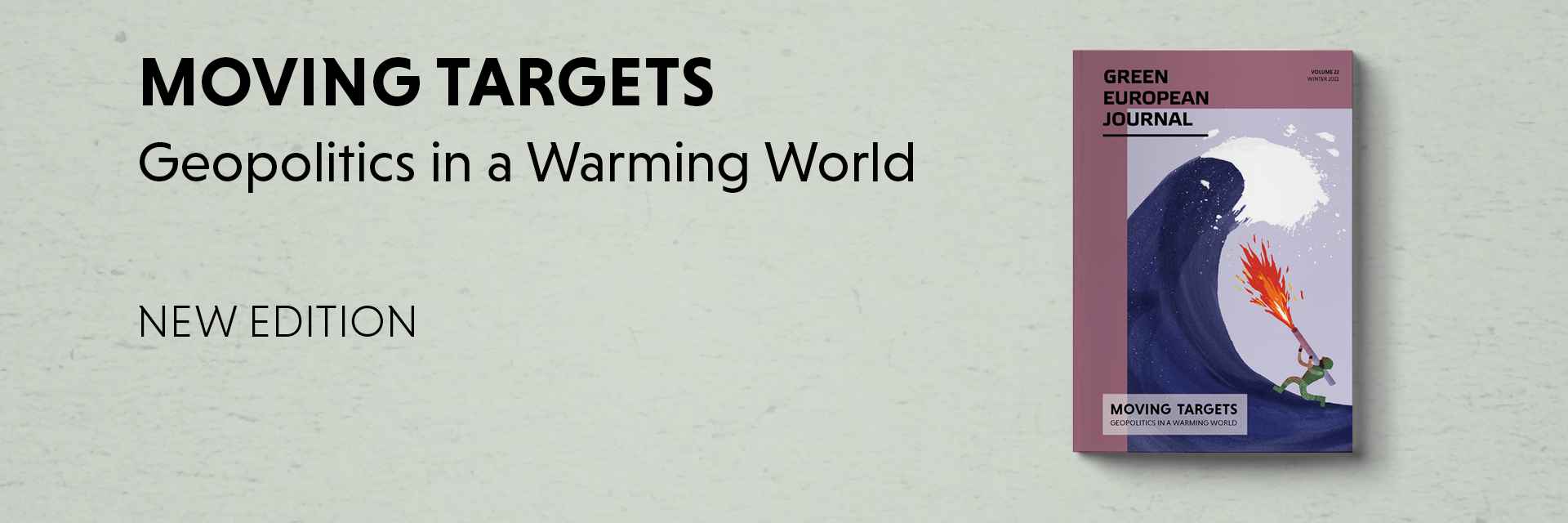Welcome to DU!
The truly grassroots left-of-center political community where regular people, not algorithms, drive the discussions and set the standards.
Join the community:
Create a free account
Support DU (and get rid of ads!):
Become a Star Member
Latest Breaking News
General Discussion
The DU Lounge
All Forums
Issue Forums
Culture Forums
Alliance Forums
Region Forums
Support Forums
Help & Search
Celerity
Celerity's Journal
Celerity's Journal
March 19, 2022
https://www.thelocal.se/20220317/why-is-there-a-swedish-speaking-village-in-rural-ukraine/

King Carl XVI Gustaf and Queen Silvia visit Gammalsvenskby on a state visit to Ukraine in 2008. Photo: Henrik Montgomery/TT/Scanpix
The history of Gammalsvenskby – or Gammölsvänskbi in the local dialect – can be traced back to the end of the Great Northern War. In 1721, this war between Sweden and Russia which marks the end of Sweden’s time as a great European power. It is referred to in Swedish as stormaktstiden or “the period of great power”, and it ended with Sweden losing a great deal of territory in the Baltic region to Russia, including swathes of land in present-day Latvia, Estonia and Russia.
One of these losses was the island of Hiiumaa (known as Dagö or “Day Island” in Swedish) in present-day Estonia. This island, having been part of Swedish-speaking Estonia since 1563, had a sizeable Swedish-speaking population, who were resettled by Imperialist Russia in 1780 to what was then referred to as Novorussiya, an area of former Russian territory which became part of Ukraine in 1918.
These resettlers – as many as 1,200 – trekked from Hiiumaa in Estonia to the banks of the Dnieper river in southern Ukraine in a journey taking nine months. At least a quarter of them died on the way, and many more were wiped out by dysentery in their first year in Ukraine. By 1794 – just fourteen years after relocating – only 224 people remained in Gammalsvenskby.
However, Gammalsvenskby’s population slowly increased in the following years, partly due to the arrival of Black Sea Germans, ethnic Germans who were encouraged to settle on the north coast of the Black Sea by Alexander I of Russia in the late 18th and early 19th century. In German, this area of Ukraine was referred to as Schwedengebiet or “Sweden District”.
snip
Why is there a Swedish-speaking village in rural Ukraine?
The village of Gammalsvenskby or "Old Swedish Town" in southern Ukraine is in Swedish news following reports that it is currently surrounded by Russian troops. But why is it there in the first place?https://www.thelocal.se/20220317/why-is-there-a-swedish-speaking-village-in-rural-ukraine/

King Carl XVI Gustaf and Queen Silvia visit Gammalsvenskby on a state visit to Ukraine in 2008. Photo: Henrik Montgomery/TT/Scanpix
The history of Gammalsvenskby – or Gammölsvänskbi in the local dialect – can be traced back to the end of the Great Northern War. In 1721, this war between Sweden and Russia which marks the end of Sweden’s time as a great European power. It is referred to in Swedish as stormaktstiden or “the period of great power”, and it ended with Sweden losing a great deal of territory in the Baltic region to Russia, including swathes of land in present-day Latvia, Estonia and Russia.
One of these losses was the island of Hiiumaa (known as Dagö or “Day Island” in Swedish) in present-day Estonia. This island, having been part of Swedish-speaking Estonia since 1563, had a sizeable Swedish-speaking population, who were resettled by Imperialist Russia in 1780 to what was then referred to as Novorussiya, an area of former Russian territory which became part of Ukraine in 1918.
These resettlers – as many as 1,200 – trekked from Hiiumaa in Estonia to the banks of the Dnieper river in southern Ukraine in a journey taking nine months. At least a quarter of them died on the way, and many more were wiped out by dysentery in their first year in Ukraine. By 1794 – just fourteen years after relocating – only 224 people remained in Gammalsvenskby.
However, Gammalsvenskby’s population slowly increased in the following years, partly due to the arrival of Black Sea Germans, ethnic Germans who were encouraged to settle on the north coast of the Black Sea by Alexander I of Russia in the late 18th and early 19th century. In German, this area of Ukraine was referred to as Schwedengebiet or “Sweden District”.
snip
March 19, 2022
https://newsletters.theatlantic.com/galaxy-brain/6233ecafdc551a002089fb15/lessons-from-19-years-in-the-metaverse/

In 2003, Wagner James Au was a young freelance writer in the Bay Area covering massive multiplayer games like The Sims Online for Salon and Wired. During that time he got an assignment to review a new virtual-world game called Second Life, made by a company called Linden Lab. He started poking around this nascent digital world and, soon after, met the developers, who made him an interesting offer to embed as a reporter inside the game. Au had complete editorial freedom to cover everything Second Life, including weird goings-on, harassment, and cybercrime. Eventually, Au wrote one of the definitive books on the game, The Making of Second Life: Notes From the New World. He still exhaustively covers developments in Second Life on his blog, New World Notes, the longest-running metaverse news site. One of his most recent posts is about Russian Second Lifers who run digital businesses in the game, and are now trying to escape sanctions by fleeing the country.
Au is, in short, one of the few people with a real historical perspective on, and lived experience in, metaverse communities. Since Facebook rebranded as Meta, the idea of the metaverse has been consumed by a kind of ahistorical hype cycle. Brands are flooding into the space and people are issuing broad proclamations about what a virtual world is supposed to look like. There are also plenty who are dismissing the metaverse as “something nobody asked for,” but as Au’s experience shows, there are millions of people who’ve been dutifully cultivating and thriving in digital worlds for decades now. Au is a sharp observer of this space and, to some degree, an advocate for digital worlds. But he’s also a journalist and a critic. He offers a hopeful look at the promise of metaverse communities but also pulls no punches talking about the ways in which craven actors threaten to bring the whole experiment down. I found his answers about Meta’s forays into the metaverse to be especially worthwhile.
Charlie Warzel: People talk all the time about the metaverse as if it’s this new thing that Facebook is trying to bring into existence. There are people like yourself who’ve been documenting metaverse communities for decades. How big is Second Life right now?
Wagner James Au: In terms of users, Second Life is still vibrant. There are about 600,000 monthly active users and about 200,000 daily active users after almost 20 years. One reason I keep writing about it is that there’s so much there. And so much interest from people who’re involved in these worlds.
snip
my add
that picture does the designs in Second Life no favours, it is far beyond that rudimentary level shown above
examples (these are all real avatars and buildings, etc, the pics are taken in the game)
































































Second Life's Mistakes Should Inform Today's Metaverse: Lessons From 19 Years in the Metaverse
A conversation with one of the few people who have real historical perspective on digital communitieshttps://newsletters.theatlantic.com/galaxy-brain/6233ecafdc551a002089fb15/lessons-from-19-years-in-the-metaverse/

In 2003, Wagner James Au was a young freelance writer in the Bay Area covering massive multiplayer games like The Sims Online for Salon and Wired. During that time he got an assignment to review a new virtual-world game called Second Life, made by a company called Linden Lab. He started poking around this nascent digital world and, soon after, met the developers, who made him an interesting offer to embed as a reporter inside the game. Au had complete editorial freedom to cover everything Second Life, including weird goings-on, harassment, and cybercrime. Eventually, Au wrote one of the definitive books on the game, The Making of Second Life: Notes From the New World. He still exhaustively covers developments in Second Life on his blog, New World Notes, the longest-running metaverse news site. One of his most recent posts is about Russian Second Lifers who run digital businesses in the game, and are now trying to escape sanctions by fleeing the country.
Au is, in short, one of the few people with a real historical perspective on, and lived experience in, metaverse communities. Since Facebook rebranded as Meta, the idea of the metaverse has been consumed by a kind of ahistorical hype cycle. Brands are flooding into the space and people are issuing broad proclamations about what a virtual world is supposed to look like. There are also plenty who are dismissing the metaverse as “something nobody asked for,” but as Au’s experience shows, there are millions of people who’ve been dutifully cultivating and thriving in digital worlds for decades now. Au is a sharp observer of this space and, to some degree, an advocate for digital worlds. But he’s also a journalist and a critic. He offers a hopeful look at the promise of metaverse communities but also pulls no punches talking about the ways in which craven actors threaten to bring the whole experiment down. I found his answers about Meta’s forays into the metaverse to be especially worthwhile.
Charlie Warzel: People talk all the time about the metaverse as if it’s this new thing that Facebook is trying to bring into existence. There are people like yourself who’ve been documenting metaverse communities for decades. How big is Second Life right now?
Wagner James Au: In terms of users, Second Life is still vibrant. There are about 600,000 monthly active users and about 200,000 daily active users after almost 20 years. One reason I keep writing about it is that there’s so much there. And so much interest from people who’re involved in these worlds.
snip
my add
that picture does the designs in Second Life no favours, it is far beyond that rudimentary level shown above
examples (these are all real avatars and buildings, etc, the pics are taken in the game)
































































March 19, 2022
https://www.thrillist.com/entertainment/nation/netflix-black-crab-review

In the wake of the 2022 Winter Olympics, we're all still riding high on those two weeks when we can pretend to know way more about frosty sports than we actually do. By far the most universally exciting and rewarding (though not without its share of scandal and heartbreak) is anything having to do with ice skating, whether it's speedskating races, figure skating competitions, or the romantic rush of ice dancing. For most of us, ice skating is a sport performed on a closed course, whether that's a local lake or a man-made arena. In Netflix's new Swedish sci-fi thriller Black Crab, which stars Noomi Rapace as a volunteer soldier during a devastating war, it's the only way to save the world.
In the somewhat-near future, the world has been torn apart by constant combat, and militarized Sweden is in the grip of an unnaturally long winter. Caroline Edh (Rapace), who lost her daughter to guerilla fighters when she was a child, is chosen, along with a motley crew of Swedish soldiers, to participate in "Operation Black Crab," the secret transport of a mysterious package across an archipelago whose waters have been totally frozen over for the first time in 37 years.
At first, Caroline demurs, calling it a suicide mission, but then her commanding officer whips out the incentive: Caroline's daughter Vanja has been spotted at the very refugee camp the Black Crab group would be heading for, and at the end of her journey she would be reunited with her child and her military service would be considered finished. The renewed hope that her daughter is still alive is more than enough for Caroline, who dons her skates and her many insulating layers to lead the team across the ice. Pursued on all sides by their enemy's sniper fire and picked off one by one by the cold terrors of the ice itself, they soon discover that the contents of the mysterious package are more than any of them bargained for.

The movie, directed by Tales from the Loop producer Adam Berg, is "moody" to an extreme, with its dour tone and literally dim atmosphere. Everything on the ice is illuminated by either fire, spotlights, or rifle fire, providing plenty of visually interesting modes to capture otherwise familiar material. The feeling of constant cold is palpable, taking cues from Bong Joon Ho's Snowpiercer and the ice-fortress scenes from Inception, and most of the action happens at night, adding to the liminal sense of the vast space surrounding each character. Rapace is fierce and near-feral as a desperate mother in pursuit of a single goal, and the inevitable third-act twists force her to reconfigure her entire motivation in a way that feels organic instead of unnatural.
snip
Netflix's 'Black Crab' Puts Noomi Rapace on Thin Ice: The Swedish dystopian thriller has way more
ice skating than you might expect.https://www.thrillist.com/entertainment/nation/netflix-black-crab-review

In the wake of the 2022 Winter Olympics, we're all still riding high on those two weeks when we can pretend to know way more about frosty sports than we actually do. By far the most universally exciting and rewarding (though not without its share of scandal and heartbreak) is anything having to do with ice skating, whether it's speedskating races, figure skating competitions, or the romantic rush of ice dancing. For most of us, ice skating is a sport performed on a closed course, whether that's a local lake or a man-made arena. In Netflix's new Swedish sci-fi thriller Black Crab, which stars Noomi Rapace as a volunteer soldier during a devastating war, it's the only way to save the world.
In the somewhat-near future, the world has been torn apart by constant combat, and militarized Sweden is in the grip of an unnaturally long winter. Caroline Edh (Rapace), who lost her daughter to guerilla fighters when she was a child, is chosen, along with a motley crew of Swedish soldiers, to participate in "Operation Black Crab," the secret transport of a mysterious package across an archipelago whose waters have been totally frozen over for the first time in 37 years.
At first, Caroline demurs, calling it a suicide mission, but then her commanding officer whips out the incentive: Caroline's daughter Vanja has been spotted at the very refugee camp the Black Crab group would be heading for, and at the end of her journey she would be reunited with her child and her military service would be considered finished. The renewed hope that her daughter is still alive is more than enough for Caroline, who dons her skates and her many insulating layers to lead the team across the ice. Pursued on all sides by their enemy's sniper fire and picked off one by one by the cold terrors of the ice itself, they soon discover that the contents of the mysterious package are more than any of them bargained for.

The movie, directed by Tales from the Loop producer Adam Berg, is "moody" to an extreme, with its dour tone and literally dim atmosphere. Everything on the ice is illuminated by either fire, spotlights, or rifle fire, providing plenty of visually interesting modes to capture otherwise familiar material. The feeling of constant cold is palpable, taking cues from Bong Joon Ho's Snowpiercer and the ice-fortress scenes from Inception, and most of the action happens at night, adding to the liminal sense of the vast space surrounding each character. Rapace is fierce and near-feral as a desperate mother in pursuit of a single goal, and the inevitable third-act twists force her to reconfigure her entire motivation in a way that feels organic instead of unnatural.
snip
March 18, 2022
https://www.independent.co.uk/news/world/americas/us-politics/tulsi-babbard-russia-biden-speech-b2037274.html
Tulsi Gabbard, a former Democratic congresswoman from Hawaii, has claimed that Russia and the United States are “not so different” when it comes to freedom of expression.
Speaking with Fox News’ Jesse Watters, Ms Gabbard said the situation in the US was “not that different from what we’re seeing happening in Russia”, where news is state-controlled and challenging authority will likely lead to imprisonment, if not death.
“This is what’s so dangerous about the place that we’re in right now as a country,” said Ms Gabbard of the US, where the news is not controlled by the government, on Tuesday. “Freedom of expression is directly under threat and under attack.”
“And you’re right. It’s not so different,” she continued, without any apparent irony. “What’s happening here is not that different from what we’re seeing happening in Russia, where you’ve got state TV and controlled messaging across the board. This is where we’re at.”
snip

Tulsi Gabbard says US 'not so different' from Russia on free speech
Former Hawaii congresswoman defended spreading Kremlin-backed conspiracyhttps://www.independent.co.uk/news/world/americas/us-politics/tulsi-babbard-russia-biden-speech-b2037274.html
Tulsi Gabbard, a former Democratic congresswoman from Hawaii, has claimed that Russia and the United States are “not so different” when it comes to freedom of expression.
Speaking with Fox News’ Jesse Watters, Ms Gabbard said the situation in the US was “not that different from what we’re seeing happening in Russia”, where news is state-controlled and challenging authority will likely lead to imprisonment, if not death.
“This is what’s so dangerous about the place that we’re in right now as a country,” said Ms Gabbard of the US, where the news is not controlled by the government, on Tuesday. “Freedom of expression is directly under threat and under attack.”
“And you’re right. It’s not so different,” she continued, without any apparent irony. “What’s happening here is not that different from what we’re seeing happening in Russia, where you’ve got state TV and controlled messaging across the board. This is where we’re at.”
snip
March 18, 2022

For troops on the frontlines, receiving mail from home is a welcome reprieve from the stress and dangers of combat. During WWII, it was the job of units like the 6888th Central Postal Directory Battalion to make sure that mail sent from the states got to the troops overseas. What made the 6888th unique was that it was the only all-Black battalion of the Women’s Army Corps to serve overseas during the war.
Because of the high demand for frontline troops, the Army had a significant shortage of soldiers who could manage postal services in theater. In 1944, Black civil rights activist Mary McLeod Bethune lobbied First Lady Eleanor Roosevelt for “a role for Black women in war overseas.” Her efforts were joined by Black newspapers who called for the Army to give Black women the opportunity to support the war effort in a more direct role.

The 6888th during the Joan of Arc parade in Rouen (U.S. Army)
The Army responded by creating the 6888th Central Postal Directory Battalion in the Women’s Army Corps. Nicknamed the “Six Triple Eight”, the unit’s motto was “No mail, low morale.” The battalion was made up of 855 women, both officers and enlisted. Most of them worked as postal clerks. However, the women also filled other positions like cooks and mechanics. Because of this, the 6888th was a self-sufficient unit.
The 6888th left the United States for Europe on February 3, 1945. Twelve days later, the women arrived in Birmingham, England where they found the backlog of mail that they were responsible for. In the temporary post office, a converted aircraft hangar, mail was stacked to the ceiling. Some letters were postmarked as early as 1943. Part of the problem was that mail was commonly addressed with only a soldier’s first name or even a nickname.
snip

The only all-Black, all-female battalion that served overseas during WWII
https://www.wearethemighty.com/mighty-history/6888th-all-black-all-female-battalion/
For troops on the frontlines, receiving mail from home is a welcome reprieve from the stress and dangers of combat. During WWII, it was the job of units like the 6888th Central Postal Directory Battalion to make sure that mail sent from the states got to the troops overseas. What made the 6888th unique was that it was the only all-Black battalion of the Women’s Army Corps to serve overseas during the war.
Because of the high demand for frontline troops, the Army had a significant shortage of soldiers who could manage postal services in theater. In 1944, Black civil rights activist Mary McLeod Bethune lobbied First Lady Eleanor Roosevelt for “a role for Black women in war overseas.” Her efforts were joined by Black newspapers who called for the Army to give Black women the opportunity to support the war effort in a more direct role.

The 6888th during the Joan of Arc parade in Rouen (U.S. Army)
The Army responded by creating the 6888th Central Postal Directory Battalion in the Women’s Army Corps. Nicknamed the “Six Triple Eight”, the unit’s motto was “No mail, low morale.” The battalion was made up of 855 women, both officers and enlisted. Most of them worked as postal clerks. However, the women also filled other positions like cooks and mechanics. Because of this, the 6888th was a self-sufficient unit.
The 6888th left the United States for Europe on February 3, 1945. Twelve days later, the women arrived in Birmingham, England where they found the backlog of mail that they were responsible for. In the temporary post office, a converted aircraft hangar, mail was stacked to the ceiling. Some letters were postmarked as early as 1943. Part of the problem was that mail was commonly addressed with only a soldier’s first name or even a nickname.
snip

March 18, 2022
Joe Biden doesn’t get Kyrsten Sinema and she doesn’t get him back. That appears to be the major takeaway from a new book billed as the first major account of the Biden administration.
Snippets from This Will Not Pass, from New York Times reporters Jonathan Martin and Alexander Burns, reported by Axios, include that the Democratic Arizona senator was the first-ever lawmaker to object when White House aides asked her to mask up for a meeting with the president (she said she’d already been vaccinated).
The book also is said to report that Sinema went out of her way to mock Biden at a fundraiser with mostly Republican lobbyists while praising Republican Andy Biggs (“I love Andy Biggs!”) despite the Arizona rep’s strong backing of Donald Trump’s Big Lie.
“One person close to the president likened Biden’s perplexity at Sinema to his difficulty grasping his grandchildren’s use of... TikTok,” the authors write. “He wanted to relate, but he just didn’t quite get it.”
Read it at Axios
Sinema Refused to Mask Up for Biden Meeting, Also Mocked Him at a Mostly Republican Fundraiser
https://www.thedailybeast.com/kyrsten-sinema-refused-to-mask-up-at-white-house-and-mocked-biden-in-fundraising-meeting-new-book-saysJoe Biden doesn’t get Kyrsten Sinema and she doesn’t get him back. That appears to be the major takeaway from a new book billed as the first major account of the Biden administration.
Snippets from This Will Not Pass, from New York Times reporters Jonathan Martin and Alexander Burns, reported by Axios, include that the Democratic Arizona senator was the first-ever lawmaker to object when White House aides asked her to mask up for a meeting with the president (she said she’d already been vaccinated).
The book also is said to report that Sinema went out of her way to mock Biden at a fundraiser with mostly Republican lobbyists while praising Republican Andy Biggs (“I love Andy Biggs!”) despite the Arizona rep’s strong backing of Donald Trump’s Big Lie.
“One person close to the president likened Biden’s perplexity at Sinema to his difficulty grasping his grandchildren’s use of... TikTok,” the authors write. “He wanted to relate, but he just didn’t quite get it.”
Read it at Axios
March 18, 2022
https://www.nytimes.com/2022/03/17/us/politics/democrats-oil-companies-gas-prices.html

An environmental coalition is trying to raise the pressure on Congress to pass stalled climate legislation and to draw attention to what it claims is profiteering by oil companies.
At the urging of environmental groups, Democrats are going on the offensive on gas prices — hitting energy companies with a populist message that puts the party squarely at odds with Republicans and the oil industry. To do otherwise would be “dangerous and political malpractice,” Geoff Garin, a Democratic pollster, argued in a memo published on Thursday.
In a survey, Garin found that 60 percent of voters viewed “price gouging and excessive price increases by oil companies to increase their profits” as major reasons that gas prices have risen to a national average of $4.29 per gallon. “They’re jacking up prices, and people see that,” said Pete Maysmith, a senior vice president for campaigns at the League of Conservation Voters, which co-sponsored the poll.
Climate Power, an allied group, unveiled an ad this week, titled “We’ve Been Here Before,” that is running on cable television and online. “Here we are again,” the narrator begins over footage of Russian tanks. “An overseas conflict hikes up our gas prices, and oil C.E.O.s rake in record profits.” The ad is the beginning of a new $5 million push by a coalition of green groups to highlight what they claim is profiteering by oil companies and to raise the pressure on Congress to pass stalled climate legislation.
“This is an inflection point,” said John Podesta, a former chief of staff to Bill Clinton and the chairman of the board of directors for the Center for American Progress. “The public sees a petro-fueled, authoritarian regime violating all the laws of war and pounding a civilian population in Ukraine — these two things have come together in a visceral way.”
snip
Climate Activists Flex Their Political Muscle
Environmental groups want Democrats to confront oil companies over high gas prices. And Democrats are listening.https://www.nytimes.com/2022/03/17/us/politics/democrats-oil-companies-gas-prices.html

An environmental coalition is trying to raise the pressure on Congress to pass stalled climate legislation and to draw attention to what it claims is profiteering by oil companies.
At the urging of environmental groups, Democrats are going on the offensive on gas prices — hitting energy companies with a populist message that puts the party squarely at odds with Republicans and the oil industry. To do otherwise would be “dangerous and political malpractice,” Geoff Garin, a Democratic pollster, argued in a memo published on Thursday.
In a survey, Garin found that 60 percent of voters viewed “price gouging and excessive price increases by oil companies to increase their profits” as major reasons that gas prices have risen to a national average of $4.29 per gallon. “They’re jacking up prices, and people see that,” said Pete Maysmith, a senior vice president for campaigns at the League of Conservation Voters, which co-sponsored the poll.
Climate Power, an allied group, unveiled an ad this week, titled “We’ve Been Here Before,” that is running on cable television and online. “Here we are again,” the narrator begins over footage of Russian tanks. “An overseas conflict hikes up our gas prices, and oil C.E.O.s rake in record profits.” The ad is the beginning of a new $5 million push by a coalition of green groups to highlight what they claim is profiteering by oil companies and to raise the pressure on Congress to pass stalled climate legislation.
“This is an inflection point,” said John Podesta, a former chief of staff to Bill Clinton and the chairman of the board of directors for the Center for American Progress. “The public sees a petro-fueled, authoritarian regime violating all the laws of war and pounding a civilian population in Ukraine — these two things have come together in a visceral way.”
snip
March 18, 2022
https://thebanter.substack.com/p/when-glenn-greenwald-attacks

Perhaps the saddest spectacle in journalism is the transformation of a respected voice into a right wing shill. It happens to the greats; Christopher Hitchens famously left decades of serious reporting and commentary to join the rabid neocon movement in the early 2000s. David Horowitz went all the way from radical Leftist, to conservative, to MAGA nutjob over a six decade career. Matt Taibbi went from lobbing bombs at Wall St to brown nosing Tucker Carlson, and Glenn Greenwald went from Pulitzer prize winning journalism to trolling liberals on a former cat sharing site filled with White Nationalists.
It is one thing to refine one’s thinking over time, but to abandon basic moral decency is something entirely different. Hitchens didn’t just “evolve” his thinking, he spent years promoting George W. Bush’s horrendous lies about Iraq when he knew better. Horowitz abandoned any sense of decency entirely when fervently boarding the MAGA train, his main achievement now being the careful mentorship of Trump’s anti immigration psychopath Stephen Miller. Greenwald now revels in saddling up to racists and ethno-nationalists, mostly because it irritates liberals. The younger versions of these journalists would be repulsed by their older selves.
I still follow Matt Taibbi on Twitter and read his Substack newsletter in the vague hope that the once great journalist may someday return. Taibbi has at least shown flashes of his former self and some intellectual honesty when he gets things terribly wrong. Like most of his former fans though, I fear he is lost to the fringes of Alt Left/Alt Right grifterdom for good.
Of all the depressing conversion stories though, Greenwald’s is the most egregious, and the most wretched. And I speak from experience here having recently been subjected to one of his venomous attacks on Twitter. It is a story worth telling because it reveals just how low Greenwald can sink, and just how bad his “journalism” has become.
The background...........
snip
When Glenn Greenwald Attacks
Greenwald attacked me on Twitter but botched it so badly he ran off without a fight.https://thebanter.substack.com/p/when-glenn-greenwald-attacks

Perhaps the saddest spectacle in journalism is the transformation of a respected voice into a right wing shill. It happens to the greats; Christopher Hitchens famously left decades of serious reporting and commentary to join the rabid neocon movement in the early 2000s. David Horowitz went all the way from radical Leftist, to conservative, to MAGA nutjob over a six decade career. Matt Taibbi went from lobbing bombs at Wall St to brown nosing Tucker Carlson, and Glenn Greenwald went from Pulitzer prize winning journalism to trolling liberals on a former cat sharing site filled with White Nationalists.
It is one thing to refine one’s thinking over time, but to abandon basic moral decency is something entirely different. Hitchens didn’t just “evolve” his thinking, he spent years promoting George W. Bush’s horrendous lies about Iraq when he knew better. Horowitz abandoned any sense of decency entirely when fervently boarding the MAGA train, his main achievement now being the careful mentorship of Trump’s anti immigration psychopath Stephen Miller. Greenwald now revels in saddling up to racists and ethno-nationalists, mostly because it irritates liberals. The younger versions of these journalists would be repulsed by their older selves.
I still follow Matt Taibbi on Twitter and read his Substack newsletter in the vague hope that the once great journalist may someday return. Taibbi has at least shown flashes of his former self and some intellectual honesty when he gets things terribly wrong. Like most of his former fans though, I fear he is lost to the fringes of Alt Left/Alt Right grifterdom for good.
Of all the depressing conversion stories though, Greenwald’s is the most egregious, and the most wretched. And I speak from experience here having recently been subjected to one of his venomous attacks on Twitter. It is a story worth telling because it reveals just how low Greenwald can sink, and just how bad his “journalism” has become.
The background...........
snip
March 18, 2022
HOBBS, N.M. (AP) — A 13-year-old was driving the pickup truck that struck a van in West Texas in a fiery collision that killed nine people, including six members of a college golf team and their coach, a National Transportation Safety Board official said Thursday. The child and a man traveling in the truck also died.
The truck’s left front tire, which was a spare tire, also blew out before impact, said NTSB Vice Chairman Bruce Landsberg. Although it was unclear how fast the two vehicles were traveling, “this was clearly a high-speed collision,” Landsberg said. He added investigators hoped to retrieve enough information from the vehicle’s recorders to better understand what happened.
One must be 14 in Texas to start taking classroom courses for a learner’s license and 15 to receive that provisional license to drive with an instructor or licensed adult in the vehicle. Department of Public Safety Sgt. Victor Taylor said a 13-year-old driving would be breaking the law.
The pickup truck crossed into the opposite lane on a darkened, two-lane highway before colliding head-on with a van, killing the boy, a man traveling with him, six New Mexico college students and a golf coach.
snip
NTSB: 13-year-old drove pickup in Texas crash that killed 9
https://apnews.com/article/sports-canada-texas-education-europe-b03ae1b3a1193087d5444429182fd2daHOBBS, N.M. (AP) — A 13-year-old was driving the pickup truck that struck a van in West Texas in a fiery collision that killed nine people, including six members of a college golf team and their coach, a National Transportation Safety Board official said Thursday. The child and a man traveling in the truck also died.
The truck’s left front tire, which was a spare tire, also blew out before impact, said NTSB Vice Chairman Bruce Landsberg. Although it was unclear how fast the two vehicles were traveling, “this was clearly a high-speed collision,” Landsberg said. He added investigators hoped to retrieve enough information from the vehicle’s recorders to better understand what happened.
One must be 14 in Texas to start taking classroom courses for a learner’s license and 15 to receive that provisional license to drive with an instructor or licensed adult in the vehicle. Department of Public Safety Sgt. Victor Taylor said a 13-year-old driving would be breaking the law.
The pickup truck crossed into the opposite lane on a darkened, two-lane highway before colliding head-on with a van, killing the boy, a man traveling with him, six New Mexico college students and a golf coach.
snip
March 18, 2022

https://www.greeneuropeanjournal.eu/edition/moving-targets/
https://www.greeneuropeanjournal.eu/content/uploads/2021/11/GEJ22_Moving-Tagets_Geopolitics-in-a-Warming-World.pdf
If globalisation once appeared to be moving steadily towards closer cooperation and governance, this trajectory has ground to a halt. Despite shared challenges from environmental upheaval to the pandemic, geopolitical tensions abound as countries increasingly look inwards. World powers of the likes of the United States and China have always struggled over economic and military dominance, but never before has the planet’s climate been so starkly at stake. With much in the balance, how can Greens and progressives pick up the scattered seeds of a more just and sustainable world?
Moving Targets: Geopolitics in a Warming World

https://www.greeneuropeanjournal.eu/edition/moving-targets/
https://www.greeneuropeanjournal.eu/content/uploads/2021/11/GEJ22_Moving-Tagets_Geopolitics-in-a-Warming-World.pdf
If globalisation once appeared to be moving steadily towards closer cooperation and governance, this trajectory has ground to a halt. Despite shared challenges from environmental upheaval to the pandemic, geopolitical tensions abound as countries increasingly look inwards. World powers of the likes of the United States and China have always struggled over economic and military dominance, but never before has the planet’s climate been so starkly at stake. With much in the balance, how can Greens and progressives pick up the scattered seeds of a more just and sustainable world?
Articles in this edition
Powers at Play
BY Jamie Kendrick
As challenges of interdependence grow and states turn further inwards, green politics can make an essential progressive contribution to the debate on Europe's geopolitical stance.
We Need to Talk: Why Change Only Comes Through Communication
BY Pekka Haavisto
Finnish Foreign Minister Pekka Haavisto on how environmental disasters, vaccine solidarity, and human rights are at the heart of geopolitics.
Will Ecology Expand the EU’s Horizons?
BY Lucile Schmid
With the US flip-flopping on its commitments and China disregarding democratic principles, the EU should seize the opportunity for real climate leadership.
How We Put Out the Fire
BY Kim Stanley Robinson
Writer Kim Stanley Robinson explores how science fiction can be a source of inspiration rather than a reason to despair.
The Unhealthy Geopolitics of a Sovereign Europe
BY Luiza Bialasiewicz
The post-pandemic rhetoric around a sovereign Europe is at best contradictory and at worst, a prescription to enact exclusionary policy.
Forget Geopolitics, Save the Climate
BY Anatol Lieven, Roderick Kefferpütz
Why climate change is the ultimate international security threat.
To Repair its Geopolitics, the West Needs a New Model of Statehood
BY Natalie Bennett
Natalie Bennett looks at the dark history of the Cold War to argue that it is time for a real rules-based democratic order.
Changing Landscapes
Six maps to understand the new global geopolitics.
Europe’s Tech Policy Misses a Common Understanding
BY Marietje Schaake
How technology is influencing Europe's foreign policy development and geopolitical positions.
Can Europe Shape its Digital Space?
BY Alexandra Geese
Why human rights and democracy need to be enshrined in Europe’s digital space.
The Long Arm of Transnational Repression in Europe
BY Nick Ashdown
The practice of targeting “enemy“ citizens abroad is not new, but it is on a rise and undermines fundamental rights.
Power and Responsibility: Putting Human Rights at the Centre of EU Foreign Policy
BY Hannah Neumann
Hannah Neumann on European foreign policy after Afghanistan and the role of values in international diplomacy.
The New World Economic Order
BY Roderick Kefferpütz
Trade wars, sanctions, and tech blockades are signs of a world economy in the grips of tension and transformation. What underlies this change?
A Geopolitical Europe Starts with Social Policy
BY Mehtap Akgüç
Any attempt at a geopolitical vision for Europe needs to start with social justice and democracy.
Europe’s Energy Transition: Ukraine’s Salvation?
BY Thomas Laffitte
Thomas Laffitte looks at the politics of oil and gas, nuclear power and renewables and what they mean for Ukraine and its future.
The Limits of Europe’s Corporate-Led Hydrogen Project
BY Gabriela Cabaña, Mario Diaz
Gabriela Cabaña and Mario Diaz look ask who will bear the costs of Europe’s nascent hydrogen economy.
Understanding the New Silk Roads of Energy
BY Eric Armando
The new silk roads are critical to China’s independence and growth but it faces many challenges, some of which are of its own making.
Climate Leadership Means Building Bridges
BY Beatrice White, Robyn Eckersley
For climate negotiations to succeed, building alliances alliances and coalitions across cultural, economic, and geographical divides is crucial.
The Road to a Fossil Fuel Non-Proliferation Treaty
BY Peter Newell
COPs only get us so far. Peter Newell outlines an alternative approach to keep fossil fuels in the ground.
A New Geopolitics for the Anthropocene
BY Simon Dalby
Simon Dalby on why achieving security in the age of climate crisis requires unpicking the fossil-fuelled industrial order.
Fossilised Politics in the Eastern Mediterranean
BY Sevil Turan
A brief exploration of the devastating forest fires in Turkey, the government reaction and its implications for future.
Extraction and Energy Transition in Serbia
BY Predrag Momčilović
A short analysis of how geopolitical relations impact Serbian discussions about politics, energy, and the future.
Climate Colonialism in Morocco
BY Florent Marcellesi
Florent Marcellesi examines Morocco's colonial attempts to extend its influence into Western Sahara through climate initiatives and investment.
Nigeria as a “Climate Hotspot”
BY Nathan Awuapila
Nathan Awuapila outlines the effects and challenges climate change is creating in Nigeria.
Brazil’s Battle Lines of Deforestation
BY Vidal Dias Da Mota Junior
Vidal Mota Jr. evaluates the impact of deforestation in Brazil against its international climate obligations.
Powers at Play
BY Jamie Kendrick
As challenges of interdependence grow and states turn further inwards, green politics can make an essential progressive contribution to the debate on Europe's geopolitical stance.
We Need to Talk: Why Change Only Comes Through Communication
BY Pekka Haavisto
Finnish Foreign Minister Pekka Haavisto on how environmental disasters, vaccine solidarity, and human rights are at the heart of geopolitics.
Will Ecology Expand the EU’s Horizons?
BY Lucile Schmid
With the US flip-flopping on its commitments and China disregarding democratic principles, the EU should seize the opportunity for real climate leadership.
How We Put Out the Fire
BY Kim Stanley Robinson
Writer Kim Stanley Robinson explores how science fiction can be a source of inspiration rather than a reason to despair.
The Unhealthy Geopolitics of a Sovereign Europe
BY Luiza Bialasiewicz
The post-pandemic rhetoric around a sovereign Europe is at best contradictory and at worst, a prescription to enact exclusionary policy.
Forget Geopolitics, Save the Climate
BY Anatol Lieven, Roderick Kefferpütz
Why climate change is the ultimate international security threat.
To Repair its Geopolitics, the West Needs a New Model of Statehood
BY Natalie Bennett
Natalie Bennett looks at the dark history of the Cold War to argue that it is time for a real rules-based democratic order.
Changing Landscapes
Six maps to understand the new global geopolitics.
Europe’s Tech Policy Misses a Common Understanding
BY Marietje Schaake
How technology is influencing Europe's foreign policy development and geopolitical positions.
Can Europe Shape its Digital Space?
BY Alexandra Geese
Why human rights and democracy need to be enshrined in Europe’s digital space.
The Long Arm of Transnational Repression in Europe
BY Nick Ashdown
The practice of targeting “enemy“ citizens abroad is not new, but it is on a rise and undermines fundamental rights.
Power and Responsibility: Putting Human Rights at the Centre of EU Foreign Policy
BY Hannah Neumann
Hannah Neumann on European foreign policy after Afghanistan and the role of values in international diplomacy.
The New World Economic Order
BY Roderick Kefferpütz
Trade wars, sanctions, and tech blockades are signs of a world economy in the grips of tension and transformation. What underlies this change?
A Geopolitical Europe Starts with Social Policy
BY Mehtap Akgüç
Any attempt at a geopolitical vision for Europe needs to start with social justice and democracy.
Europe’s Energy Transition: Ukraine’s Salvation?
BY Thomas Laffitte
Thomas Laffitte looks at the politics of oil and gas, nuclear power and renewables and what they mean for Ukraine and its future.
The Limits of Europe’s Corporate-Led Hydrogen Project
BY Gabriela Cabaña, Mario Diaz
Gabriela Cabaña and Mario Diaz look ask who will bear the costs of Europe’s nascent hydrogen economy.
Understanding the New Silk Roads of Energy
BY Eric Armando
The new silk roads are critical to China’s independence and growth but it faces many challenges, some of which are of its own making.
Climate Leadership Means Building Bridges
BY Beatrice White, Robyn Eckersley
For climate negotiations to succeed, building alliances alliances and coalitions across cultural, economic, and geographical divides is crucial.
The Road to a Fossil Fuel Non-Proliferation Treaty
BY Peter Newell
COPs only get us so far. Peter Newell outlines an alternative approach to keep fossil fuels in the ground.
A New Geopolitics for the Anthropocene
BY Simon Dalby
Simon Dalby on why achieving security in the age of climate crisis requires unpicking the fossil-fuelled industrial order.
Fossilised Politics in the Eastern Mediterranean
BY Sevil Turan
A brief exploration of the devastating forest fires in Turkey, the government reaction and its implications for future.
Extraction and Energy Transition in Serbia
BY Predrag Momčilović
A short analysis of how geopolitical relations impact Serbian discussions about politics, energy, and the future.
Climate Colonialism in Morocco
BY Florent Marcellesi
Florent Marcellesi examines Morocco's colonial attempts to extend its influence into Western Sahara through climate initiatives and investment.
Nigeria as a “Climate Hotspot”
BY Nathan Awuapila
Nathan Awuapila outlines the effects and challenges climate change is creating in Nigeria.
Brazil’s Battle Lines of Deforestation
BY Vidal Dias Da Mota Junior
Vidal Mota Jr. evaluates the impact of deforestation in Brazil against its international climate obligations.
Profile Information
Gender: FemaleHometown: London
Home country: US/UK/Sweden
Current location: Stockholm, Sweden
Member since: Sun Jul 1, 2018, 07:25 PM
Number of posts: 43,303